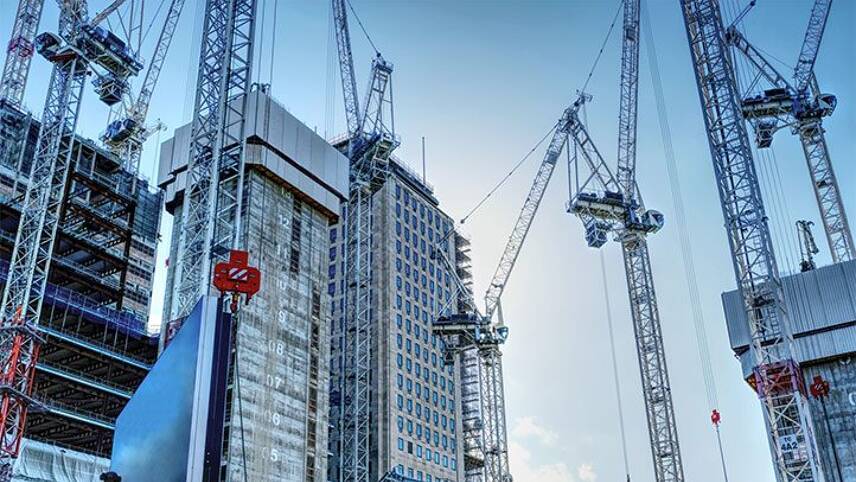Register for free and continue reading
Join our growing army of changemakers and get unlimited access to our premium content

The Playbook outlines 20 strategies organisations can adopt
The WorldGBC and its network of over 75 Green Building Councils have today (10 May) launched the Circular Built Environment Playbook. The Playbook offers more than 20 strategies that organisations can use to embed circular design principles across all stages of building development.
The Playbook is designed to contribute to global climate aims, including minimising material extraction, optimising nature-based solutions and closing the loop once a building reaches the end of its lifecycle.
The Playbook calls on built environment firms to adopt core principles to drive circular action. These include reducing consumption of materials and resources, optimising product lifespan, designing for disassembly, reuse and recycling and using nature regeneratively.
Only 7% of what is made globally goes back into the circular economy, with the rest discarded after use. Additionally, a year’s worth of biological resources is used up in just seven months. An estimated two billion tonnes of municipal solid waste was generated in 2016 and this number is expected to increase by 70% to 3.4 billion tonnes by 2050.
WorldGBC is calling on all actors from across the value chain to embrace these principles.
The WorldGBC’s chief executive Cristina Gamboa said: “It is clear that if we want to secure a future for our planet and people, then we cannot keep going on this path of consumption and waste. That’s why our network is taking action to increase awareness and accessibility of circular economy solutions, by guiding all stakeholders towards sustainable, circular decision-making.
“The need for a circular built environment has never been more important and our Circularity Accelerator programme is shining a light on the solutions available.”
Last year, the WorldGBC launched an accelerator to encourage its members to accelerate their work towards a 2030 goal of zero waste to landfill and the delivery of net-zero resource depletion across the whole lifecycle of buildings. Members will also be prompted to take a fresh look at how they can incorporate more sustainable materials and use materials more efficiently.
The Playbook specifically calls for organisations to view buildings as a “material bank” where every brick, wall, door, and window pane has a value and should be reused and recovered at the end of that building’s life.
The WorldGBC also calls for an expanded focus on nature-based solutions. The Playbook states that these solutions can lower energy demand for buildings to minimise heating, cooling and ventilation and “should be integrated into climate resilience measures as well”.
Earlier this year, the UK Government confirmed that built environment developers would need to achieve a 10% biodiversity net gain at all large domestic, commercial and mixed-use sites from this November.
The mandate will not come into effect for smaller sites until 2024, with Defra having heard evidence that local authorities and very small developers, in particular, are not yet prepared for the mandate due to the fallout of the pandemic.
Ensuring biodiversity net gain at all developments was a key facet of the Environment Bill, which received Royal Assent in late 2021 after years of delays.
Mission Positive in the Built Environment
edie has published a new report looking at how the built environment sector can go further than merely decarbonising to reach net-zero, by focusing on a climate-positive approach to business.
The report has been created in assistance with Laing O’Rourke and features a foreword from BRE’s chief executive Gillian Charlesworth. It also uses exclusive results from edie’s Net-Zero Business Barometer, an in-depth online survey of hundreds of sustainability and energy professionals.
This built environment report has also been produced with guidance from in-depth discussions with a steering panel of sustainability experts from some of the world’s most respected construction and built environment firms at edie’s SPARK event for sustainability and energy leaders in London in November 2022.
Click here to download the Mission Positive built environment report.


Please login or Register to leave a comment.